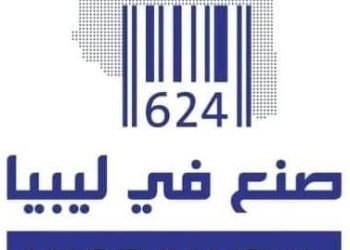Tripoli, 29 May 2012:
Just one day after the Anglo-Dutch oil major Shell announced it was suspending Libyan operations and paying off . . .[restrict]its local staff, its rival BP revealed that it has reached agreement with the National Oil Corporation and is resuming its exploration in the country.
Shell has reportedly been influenced in its pull-out decision by a combination of poor results from its five exploration blocks, rising security concerns for its personnel and operations and suggestions that the government is driving too hard a deal on Qaddafi-era contracts, which it said originally would be honoured. It is giving up its exploration rights in Block 89 in the Sirte basin and its Liquified Natural Gas Agreement with NOC.
Until today, BP had appeared to be havering over the resumption of its exploration programme under a $900 million deal signed in 2009, which was suspended at the start of the revolution. It was thought that, in line with other foreign oil companies, it might hold back from re-committing to the country or like Winterthur, sit on major new investments. This would have been bad news for the government, as it seeks to attract foreign capital.
Until February 2011, BP had shot 3D seismic over offshore blocks in the Sirte Basin and onshore in the Ghadames basin, covering an area of 31,000 square kilometres. Its original Exploration and Production Sharing Agreement (EPSA) contract with NOC, signed in December 2007, included a commitment for five offshore and 12 onshore wells.
BP’s Executive Vice-President for Exploration, Dr Michael Daly and its Regional President for North Africa, Felipe Posada today signed a new agreement in Tripoli with NOC’s chairman, Dr Nuri Buruwin, in which BP will be compensated for losses after it declared Force Majeure 16 months ago.

After the signing ceremony, Daly said: “The lifting of Force Majeure is a significant milestone in BP’s plans to return to the exploration of onshore and offshore blocks in our existing EPSA contract. We look forward to working with the NOC and our partners in the Libyan Investment Authority, to safely implement our drilling programme.”
No doubt thinking of Shell’s decision to suspend its own Libyan operations, Buruwin responded: ”We thank BP for its commitment to Libya by lifting the force majeure. The NOC will work with BP to deliver the objectives of the EPSA and extends all help and support to BP in order to implement the agreed work program as per existing EPSA terms.”
Shell’s experience in Libya has been mixed. With the 2004 lifting of international sanctions against the Qaddafi regime, it was the first international oil company to sign an exploration and production deal that focused on gas production and processing. In 2005 it agreed a long-term gas-sector partnership with NOC. This not only included the five blocks, covering 20,000 square kilometres in the Sirte Basin, (Area 89), with a minimum investment of $187 million, but also an agreement to upgrade the antiquated Liquified Natural Gas plant at Brega at a minimum cost of $105 million, possibly rising to $450 million. The plan for the out-dated Brega LNG plant was to boost its output from 700,000 tonnes to 3.2 million tonnes per annum and to permit the production of LPG, which the existing facilities could not manage, thus impairing the quality of its LNG and effectively limiting its export market to a single Spanish customer, Enagas.
A part of the deal, if Shell found sufficient gas feedstock in its exploration blocks, was that it would partner in the building of an entirely new LNG plant at Brega. At the time, Shell’s Executive Director for Exploration and Production, Malcolm Brinded extolled the deal, describing the Sirte basin as “prolific.” He looked forward to a “new lasting and fruitful partnership with Libya.”
It was not to be. In 2008, Shell began to shoot 3D seismic in Area 89, the following year drilling six wells with an investment of $95 million, while paying NOC $103 million for permit rights. In December 2010 it was reported that the first gas had been found. At the time, an official with Shell Exploration and Production Libya, Nureffin Wafati said further exploration wells were necessary to establish if the reserves were commercial. Shortly afterwards, Brinded visited NOC in Tripoli for talks, the details of which were never made public.
Later Shell said that the results were disappointing and did not justify further investment. There was speculation that the find was of insufficient magnitude to generate a profitable supply contract to Brega, let alone to underwrite the construction of a state-of-the-art LNG plant.
Moreover the company was also running into major difficulties with its planned upgrade of the existing Brega LNG facility itself.
Five years after the original agreement with the plant’s owners, NOC subsidiary, Sirte Oil Company, it was still proving impossible to organise tenders for the first phase of the rejuvenation and expansion of the facility. By July 2010, international contractors who had been involved in earlier abortive tenders, were wondering if the deal would ever go ahead.
The problem was compounded because the original costings for the project were seen as more than optimistic. Part of the difficulty was said by global analysts IHS, to be the paralysis of middle management when it came to decision-making. “Relatively straightforward issues were kicked upstairs for a decision, which never came back” commented one analyst, “It became a nightmare for Shell.”
What feedback that did arrive included a rejection by the late Shukri Ghanem, former prime minister and then NOC chairman, of renewed tenders, on the grounds that contractors should have stuck to their original 2005 estimates.
Given that Area 89 was not going to produce the feedstock for the existing Brega facility, rejuvenated or not, the figures for Shell no longer added up. What could have been a multi-billion coup was turning into wormwood. If, as Shell has indicated, the NOC has been less flexible with the Anglo-Dutch major in renegotiating than it appears to have been with BP, then Shell’s departure may be seen as inevitable. BP also has its Ghadames blocks where there is heightened expectation of fresh highly commercial reserves.
However Shell has not apparently abandoned Libya for ever. Dow Jones yesterday reported an internal Shell email as telling employees: “This is not a country exit, and a Shell Representative Office will remain in Libya.” [/restrict]







